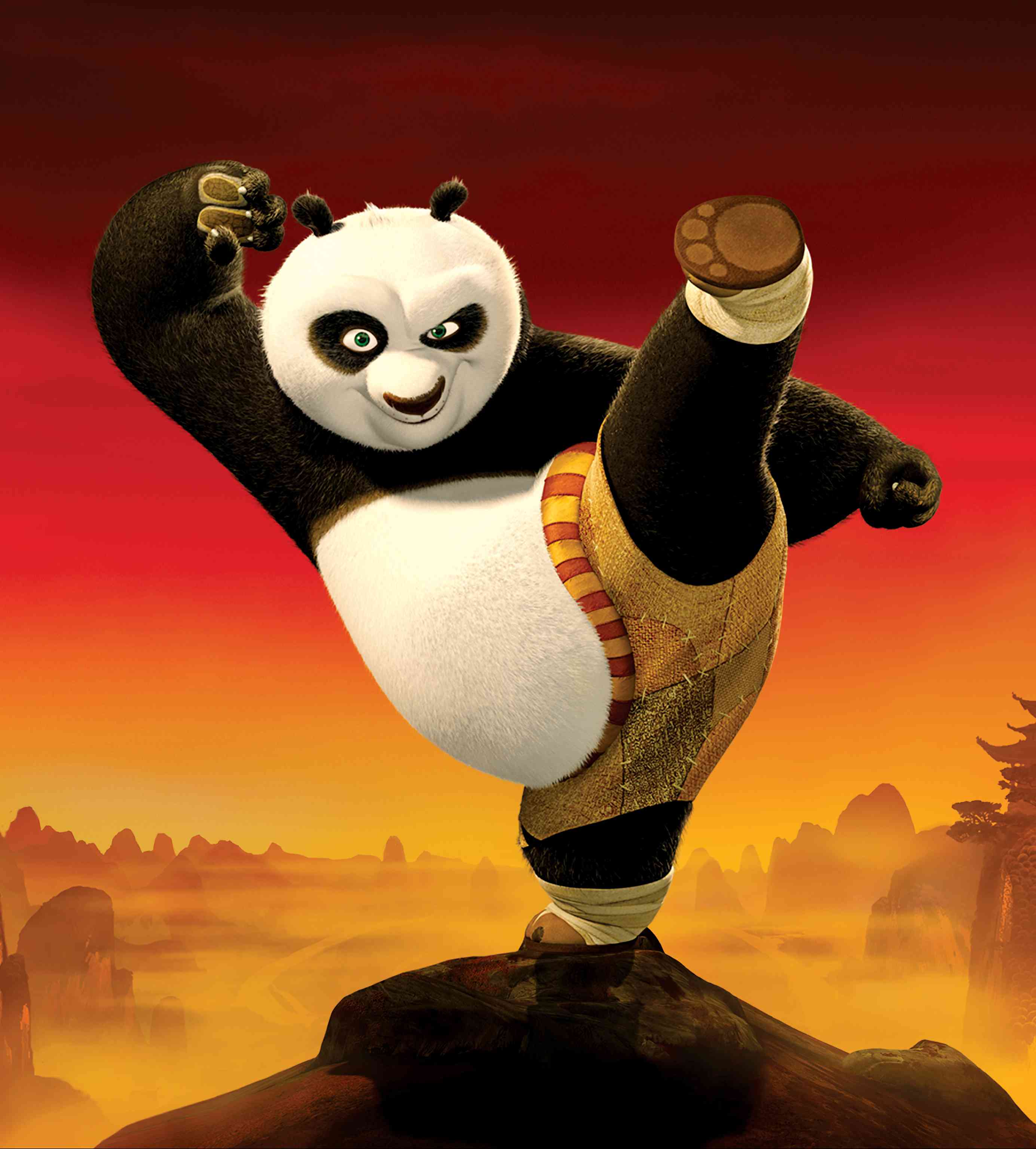Nearly ten years ago Christina Klein noted that “we are
seeing a partial erosion of the boundaries that once separated Hollywood from
local Asian film industries, and a consequent intertwining of industries on both
sides of the Pacific.” At present, the same can be said in relation to the
integration of both film industries. In the past few years alone we have seen a
number of successful films be released that incorporate both Hollywood and
Asian styles. After the United States, China has the second biggest movie
market. So naturally Hollywood’s increase in casting more Asian actors is none
too surprising. To bring in more revenue American blockbuster films are even
being set in China. Some big studios are going one step further and are
actually shooting different versions of their movies for Chinese audiences.
 |
| Fig. 1. Iron Man 3 |
Hollywood is dabbling more and more in the world of martial
arts within its current and forthcoming films. Not only appealing to the
obvious mass interest in Asia, but also to all the Western countries that have
grown up on the likes of anime. Klein (2004, p. 360) notes that “Hollywood
today is fascinated with martial arts to an extent unseen since the heyday of
Bruce Lee in the early 1970s.” This is still very much the case today. Over the
American summer period, there have been numerous feature films that have been
influenced by Eastern action and culture; The Wolverine, Red 2 and Pacific Rim
to name a few. This of course has been welcomed with open arms by fan boys of
Asian culture and martial arts. Even more specifically, the big budget
franchise “G.I. Joe” released “G.I. Joe: Retaliation” earlier this year, and
the trailer for it featured a ridiculous cliff-side martial arts battle
showcasing the unbelievable skills of world-class martial artists Byung-hun
Lee, Ray Park and Elodie Yung. That scene alone had me jumping out of my seat
in excitement. “Martial arts fight scenes have become a ubiquitous feature in
action films across the genre map” Klein (2004, p. 361), which is a result of
the “latest phase of globalization.”
 |
| Fig. 2. How I felt About G.I. Joe: Retaliation |
Not only is Hollywood incorporating martial arts into more
of their productions, but they are also poaching well-known actors and
directors from foreign nations within the entertainment industry. A great
example of this is Chinese actor, Jackie Chan. Having been the most popular
actor in East Asia since the late 1970’s, Chan has made a name for himself in
Hollywood by doing what he does best – his trademark amazing martial arts and
jaw dropping stunts. The success that surrounds Chan now however did not come
easy. As Hollywood always does, they tried to make him into the classic 'American action hero' Klein (2003), a role that is portrayed in majority of American films
that are released. Although it took a while, Hollywood producers and executives
started to realise their failed attempts and became more open to letting Chan
effectively do what originally made him a household name in Asia in the first
place. Thanks to Hollywood backing away from the typical tripe that they
usually produce, we were able to see the likes of Rush Hour 1 and 2 and
Shanghai Knights. Each film incorporating Asian elements which audiences all
over the world are starting to embrace more. By capitalizing on Chan’s success
in China, Klein (2003) notes that Hollywood hoped that by 'letting him make films similar to those he
made in Hong Kong' it would draw Asian crowds into theatres to watch his
Hollywood creations.
"The
Wolverine" recently clawed its way to the box office, starring Australia's
own, Hugh Jackman, and Japanese newcomer Tao Okamoto. Tao plays "Mariko
Yashida", who is Logan's love interest in the film. Rila Fukushima, also a
Japanese actress co-stars in the film as "Yukio", she is a mutant and
embodies total badassness. With
Hollywood courting overseas talent for their big budget movies they are opening
up doors for foreign stars to make it on a global stage. The tweaking of
already written scripts and roles to include Asian characters in my opinion is
slow progress but at the end of the day it is still progress. This topic I am
all too familiar with as my close friend himself is a Korean Australian actor
trying to break the Hollywood mould. We find that majority of the scripts he
gets sent that are for Asian-specific characters are very stereotypical, for
example they are usually extremely intelligent, poor socially, technologically
savvy and have poor English skills. These
predetermined notions do not accurately reflect on my friend in reality
however. To give you some slight insight he works at a surf retail store, he
polled the highest number of votes for league best and fairest at his local
football club and he is absolutely hopeless at speaking Korean. I honestly
can’t see him playing the reserved nerdy type given his outgoing personality, but
with Hollywood recently embracing Asian culture and creating more Asian roles
there are definitely more opportunities arising for upcoming and established
Asian actors.
 |
| Fig.3. The Wolverine |
Back focusing on the main topic here, the Asianization of
Hollywood, I find a prime example of this is the animated production Kung Fu
Panda and its sequel Kung Fu Panda 2. Produced by Steven Spielberg, Kung Fu
Panda became the biggest box office hit in China’s history. It’s crazy to think
that a movie based on Asian martial arts, fronted by an iconic and unique Asian
animal would be made by Americans. Zhao Bandi, a Chinese performance artist
stated that the Kung Fu Panda films “twisted Chinese culture and served as a
tool to kidnap the minds of the Chinese people.” However it seems from the box
office records it smashed, China embraced the humorous and loveable panda with
open arms.
 |
| Fig. 4. Kung Fu Panda |
At the beginning I noted that almost a decade ago Christina
Klein made the observation that “we are seeing a partial erosion of the
boundaries that once separated Hollywood from local Asian film industries.” Today we are definitely seeing a breakdown of the
distinct lines between the American film industry and the Asian film industry
with American blockbusters embracing Asian culture and adding Asian elements to
many of their films and also the casting of unknown or up and coming Asian
actors in massive summer titles. This however does not only apply to these very
dominant industries, but also other film industries around the world. Klein (2003) notes that they are
becoming 'increasingly integrated with one another', making each and every one of
them more globally present.
References:
Klein, Christina 2004, ‘Martial arts and globalisation of US
and Asian film industries’, Comparative America Studies, vol. 2, no. 3, pp.
360-384.
Child, Ben 2011, ‘Kung Fu Panda 2 Smashes China’s Box Office
Records’, The Guardian, Viewed 8 October 2013, <http://www.theguardian.com/film/2011/jun/06/kung-fu-panda-2-china>
Klein, Christina 2003, 'The Asia Factor In Global Hollywood', YaleGlobal, Viewed 6 October 2013, <http://yaleglobal.yale.edu/content/asia-factor-global-hollywood>
Fig. 1. Iron Man 3's Chinese Only Scenes, (2013) [Image], Viewed 5 October 2013 At: <http://collider.com/iron-man-3-chinese-only-scenes/>
Fig. 2. Shut Up And
Take My Money, (2013) [Image], Viewed 22 September 2013 At: <http://leagueoflegends.wikia.com/wiki/File:Iffem_shut-up-and-take-my-money.jpg>
Fig. 3. Rila Fukushima and Hugh Jackman in The Wolverine, (2013) [Image], Viewed 5 October 2013 At: <http://www.smh.com.au/entertainment/movies/welcome-to-hell-jackmans-journey-to-the-ultimate-wolverine-20130608-2nwaz.html>
Fig. 4. Kung Fu Panda, (2010) [Image], Viewed 8 October 2103 At: <http://akminerva.wordpress.com/2010/03/21/i-love-kung-fu-panda/>






